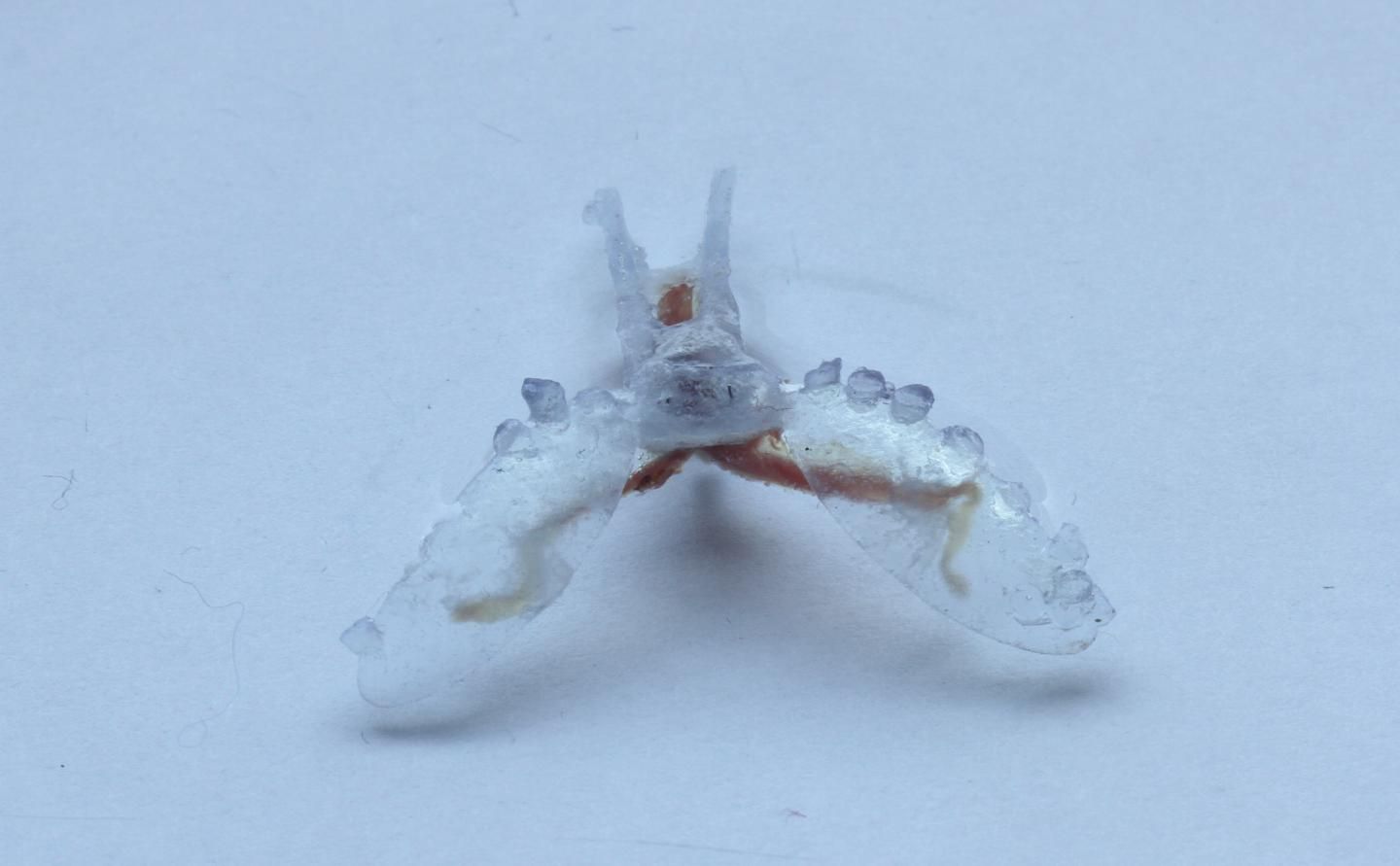Researchers at Case Western Reserve University have combined tissues from a sea slug with flexible 3D printed components to build “biohybrid” robots that crawl like sea turtles on the beach.
A muscle from the slug’s mouth provides the movement, which is currently controlled by an external electrical field. However, future iterations of the device will include ganglia, bundles of neurons and nerves that normally conduct signals to the muscle as the slug feeds, as an organic controller.
The researchers also manipulated collagen from the slug’s skin to build an organic scaffold to be tested in new versions of the robot.
Read more
